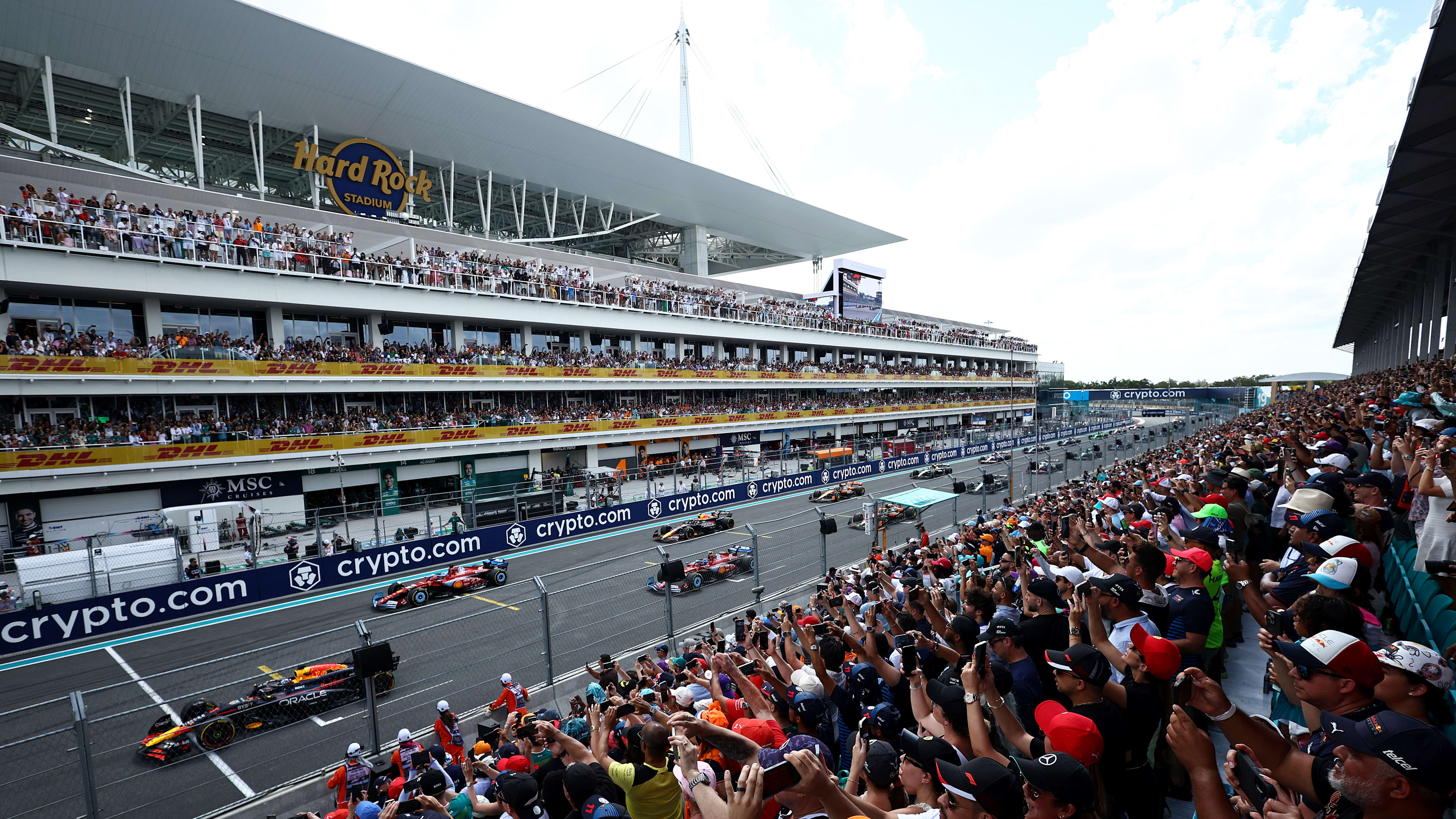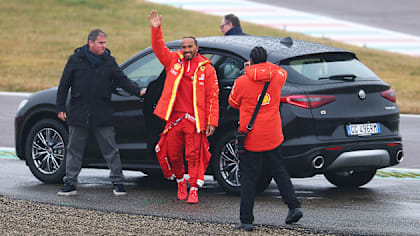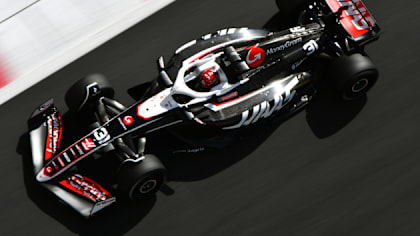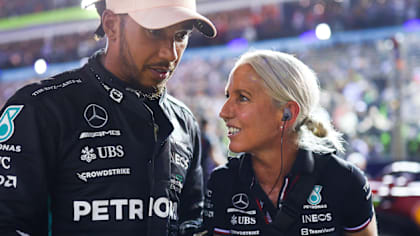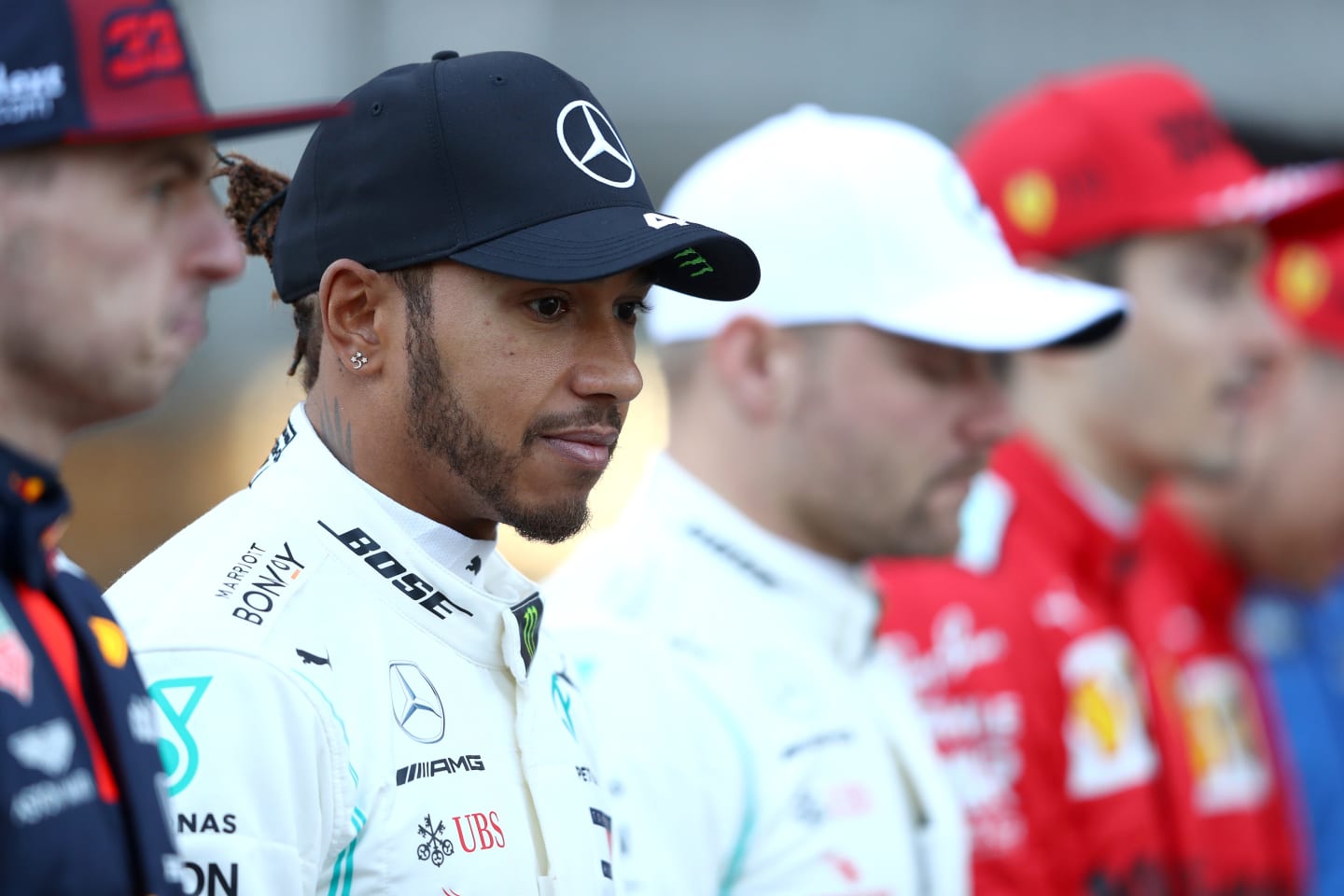
Feature
LONG READ: How much longer can Lewis Hamilton stay on top?
Share

Lewis Hamilton is in the midst of a fight he cannot win. This is the ‘generational’ battle so many great athletes face, the struggle to stay on top against the twin foes of age and the ever-improving rising stars pressuring him to loosen his grip on Formula 1 supremacy.
The only ‘victory’ for Hamilton is extending the fight because, eventually, you will be deposed. No matter how good you are, every empire crumbles, even those of an undisputed all-time great such as Hamilton. The question is, how long can Hamilton stay on top?
READ MORE: 'I've always had a target on my back’ says Hamilton as he prepares to defend title
On current evidence, his fall is not imminent. Hamilton starts 2020 as favourite for a record-equalling seventh world championship and there’s no sign his appetite for self-improvement is waning. In fact, that desire not only to leave no stone unturned, but to flip each one a few more times just to be sure, is a relatively late addition to his armoury. To understand why, you have to look back to 2016 and his title defeat to team-mate Nico Rosberg.
2016 Austrian Grand Prix: Hamilton and Rosberg collide
Then, Hamilton was the stronger performer over the season but lost the title due to a combination of having half of the significant Mercedes power unit problems suffered that season and his own occasional underperformance. He realised that it’s not enough being certain you are the best, you have to battle for every single point to eliminate the capacity for bad luck to cost you the ultimate prize.
Outstanding as Rosberg was, had Hamilton performed better in Azerbaijan, or avoided the occasional bad start, he could have been champion. He’s a relentless self-improver, as a result.
“Everybody has weaknesses and every year I work on those,” said Hamilton last year. “One year it can be one thing and the thing that was off the other year could be a strength. It’s all about trying to find the best average of your capabilities. You’re going to have weak points but you just have to work on them. The smallest mistake or weakness we have is magnified because we are so close, just like in golf or tennis.”
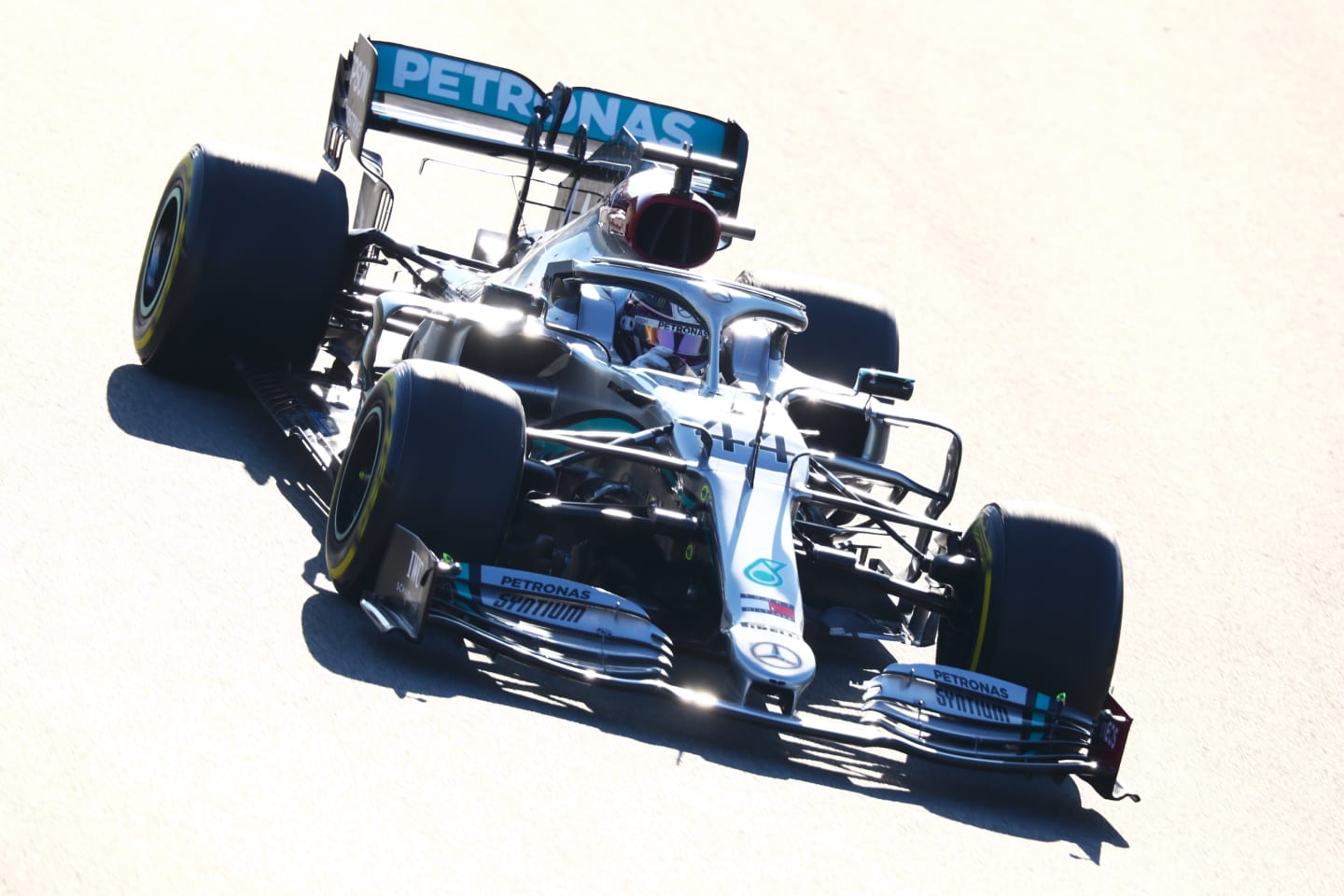
Hamilton averaged 19.4 points in 2018, 19.7 points in 2019 and 20.2 in 2014 when Mercedes were most dominant
READ MORE: Will Hamilton beat Schumacher’s record – and 9 other burning questions for 2020
This has allowed Hamilton to keep a high win rate despite Mercedes not enjoying the same pace advantage it had in the early years of the 1.6-litre V6 turbo hybrid era, which began in 2014. While Rosberg’s retirement and a more compliant team-mate in Valtteri Bottas also contributes to this, it shows how formidable Hamilton has become.
Lewis Hamilton: Wins per season
| Season | Number of wins |
|---|---|
| 2007 | 4 |
| 2008 | 5 |
| 2009 | 2 |
| 2010 | 3 |
| 2011 | 3 |
| 2012 | 4 |
| 2013 | 1 |
| 2014 | 11 |
| 2015 | 10 |
| 2016 | 10 |
| 2017 | 9 |
| 2018 | 11 |
| 2019 | 11 |
The sustained win rate since 2014 has carried Hamilton to within seven victories of Michael Schumacher’s record of 91. Should Hamilton even match his worst haul of the hybrid era in 2020, the record will be his. On top of that, his potency as a title-winning force remains strong with an average haul of 19.4 and 19.7 points-per-race over 2018 and '19 respectively. Even in 2014, when Mercedes were at their most dominant. the figure was only fractionally higher at 20.2.
Hamilton’s point about the best ‘average’ of his abilities is key to understanding where he can improve. There’s no specific area of his game that can be considered anything other than strong, but every year different facets are tested. Last year, Hamilton had to focus on improving his command of the wider picture of the race and further improving tyre management.
READ MORE: Our writers' predictions and hot takes on the new season
This was particularly important given the Mercedes, particularly following the introduction of a major upgrade at July’s German Grand Prix, was a patchy qualifier. Eight of his wins came after not starting from pole position, a record. But despite that, Hamilton’s laps led tally did not diminish when compared with the rest of the hybrid era. Proof that he’s stronger than ever when it comes to overcoming an initial disadvantage while also holding a vice-like grip on the lead once he has it even when outstanding tyre management is required.
The 2019 Hungarian Grand Prix was the perfect example of Hamilton using his tyre management skills to take another victory
It’s the ever-improving challengers that could test Hamilton. While he has seen off Sebastian Vettel recently, we’ve yet to see the battle between him and either Max Verstappen or Charles Leclerc play out. When this happens, new questions will be asked of Hamilton. Recent history suggests he will rise to the occasion and answer them.
Hamilton: Laps led per season
| Season | Laps led |
|---|---|
| 2014 | 495 |
| 2015 | 587 |
| 2016 | 566 |
| 2017 | 527 |
| 2018 | 458 |
| 2019 | 511 |
There have been times when Hamilton has rightly played the long game, giving Verstappen space when the Red Bull driver pulls one of his brilliantly judged late-braking moves, or yielding when Leclerc crowded him off the track at Monza.
He’s admitted it would be different were the circumstances to change, so how will he handle this if the title battle is with one of them? While recent progress for Hamilton has been about execution, and when he has had to battle he’s usually had the measure of Vettel, Verstappen and Leclerc could pose a very different challenge.
READ MORE: Mercedes look unbeatable – but they DO have a weakness
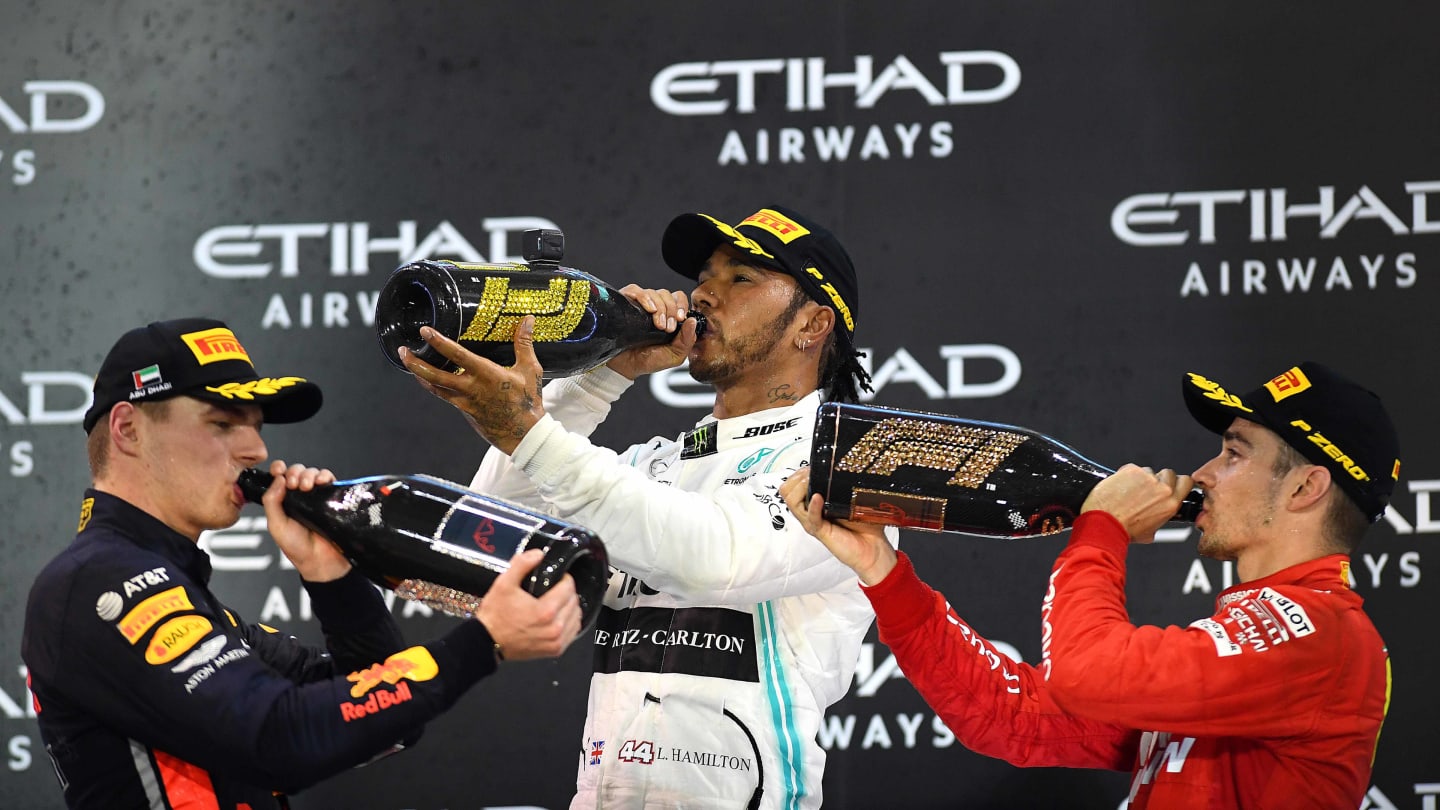
We haven't seen the battle between Verstappen, Hamilton and Leclerc fully play out, but it could be the Briton's greatest test yet
Historically, these boil down to battles of youth versus experience. Alain Prost was able to go toe-to-toe with the faster Ayrton Senna when they were McLaren team-mates through using his vast experience – beating him to the world title in 1989. Similarly, Niki Lauda did the same thing to the quicker Prost at McLaren in 1984. That said, there are no signs of Hamilton’s pace fading so right now he’s still in the sweet spot.
Hamilton is still getting better as a driver, and at worst is at his peak. He’s going to take some beating, but the next generation will get him eventually – even if it takes years.
POWER RANKINGS: From 10 to 1 – where do the teams stand ahead of the Australian Grand Prix?
YOU MIGHT ALSO LIKE
Image Gallery GALLERY: Hamilton pictured driving a Ferrari F1 car for the first time at Fiorano
News Haas reveal when 2025 challenger will take to the track for the first time
News Hamilton to reunite with former trainer Angela Cullen as his Ferrari journey begins
Feature TIMELINE: From a ‘GP2 engine’ to World Champions – recounting McLaren’s scarcely believable F1 turnaround
